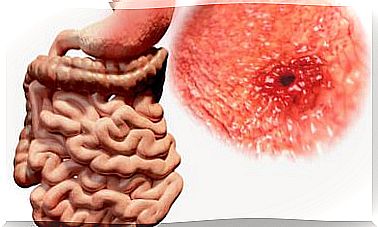Why Do Diets Work For Some People And Not Others?
Today two ways to try to lose weight predominate: either we follow a hypocaloric plan, or we join the latest fad diet. However, most diets work for only a few people. On the other hand, for others, the results are not as expected.
The biggest problem is in maintaining the weight lost over time. Approximately 95% of people who follow a weight loss diet regain the pounds lost after a while. Some people even end up weighing more than before they started.
On a global scale, obesity has been one of the main health problems in many countries for decades. And, although diet and physical exercise are two of the pillars on which the treatment must be sustained, it seems that at the moment the best formula has not been found.
Towards personalized nutrition
Diet is one of the most influential factors in our state of health. Also in the case of obesity. But there are many more aspects that come into play when someone wants to lose weight.
Many of them are very personal and therefore the same guideline cannot continue to apply to everyone. You can no longer look for diets that work for everyone. Some advance certain patients and lose weight, but in other cases they are harmful and do not help them advance.
In many cases, it may even be necessary to adjust the diet throughout the process, since what works at the beginning may stop working after a few weeks or a few months. The key is to find the diet that works for each person individually.
Therefore, we must begin to take into account more factors, beyond the calories ingested and those expended. Do you want to know more about it? Here we tell you what you should consider to achieve a healthy weight.

How do you find the diets that work?
There are various factors that we must take into account when we approach a diet to lose weight. Some can be controlled and changed more than others over which we have little control. Let’s see what are the aspects that can turn diet plans into diets that work.
1. Feeding
Food is the body’s main source of energy. Also of nutrients and other very important components for health. For this reason, eating habits will be one of the keys to the success of a diet.
Some claims that were believed to be universal have been modified over time thanks to new scientific findings. Thus, eat 5 times a day, do not skip breakfast, choose light foods or avoid fats, have joined the list of myths food, as evidenced by research published in Frontiers in Public Health .
Ideally, the eating plan should be adapted to each person: their schedules, food preferences and feelings of hunger. And that is based on fresh and typical foods of the traditional diet of each country.
In this way, adherence to the diet is achieved, one of the factors that has been shown to be key in diets that work. The more satisfied we are with the diet, the longer we can follow it.
2. The metabolism
Metabolism can be defined as the set of chemical reactions that the body performs to maintain its daily functions. This plays a basic and vital role for our health. In addition, it intervenes in body weight.
A fast metabolism will burn more energy and promote weight loss and body fat loss. Keeping your metabolism active is key to a successful diet. However, it is not an easy task, since it is partly determined by our genetics.
Some practices that can promote an increase in metabolism are:
- Exercising helps speed up your metabolism. Strength exercises are also important since a higher percentage of muscle mass is more metabolically active than fat mass.
- Stay active during the day.
- Eat enough
- Eat enough protein and at every meal.

3. The intestinal flora
More than 100 million intestinal bacteria live in our intestines. The intestinal flora of each person has a unique composition and is determined by diet, environment and lifestyle.
Keeping the intestinal flora in good condition has long been known to improve the immune system or some intestinal problems. Now, it is also related to obesity and maintenance of body weight.
But in addition, in studies carried out by Dr Jeffrey Gordon and his team, it was observed that overweight mice and humans had more bacteroidetes than firmicutes. And this composition of the intestinal flora seems to favor the use of calories.
Another investigation, directed by the biologist Marisela Gonzáles Ávila and carried out at the Center for Research and Assistance in Technology and Design of Jalisco (Mexico), reached the following conclusion:
Although only part of the success of weight loss diets has to do with the gut microbiota, these are important findings that need further investigation.
4. Hormones
In our body, a large number of hormones are produced that regulate aspects as diverse as sleep, hunger, reproduction or metabolism. The way the body harnesses or releases energy is regulated by hormones.
Some of those that play a role in controlling body weight are: leptin, ghrelin, insulin, glucagon or cortisol. Understanding how they work and what aspects regulate their expression opens the door to new approaches to obesity.
Diet, sleep or physical exercise influence the hormonal responses of our body. Therefore, they allow us to:
- Have the ability to feel satisfied.
- Avoid the accumulation of fat in adipocytes.
- Regulate food intake.
To guarantee success, it is best to be advised by a professional
For all this, the best advice to promote the success of diets is to seek advice from specialists and follow an individualized plan. In addition, this diet must be marked by balance and the presence of foods from various groups. Still not getting results? Take this into account and follow the recommendations of your nutritionist.









